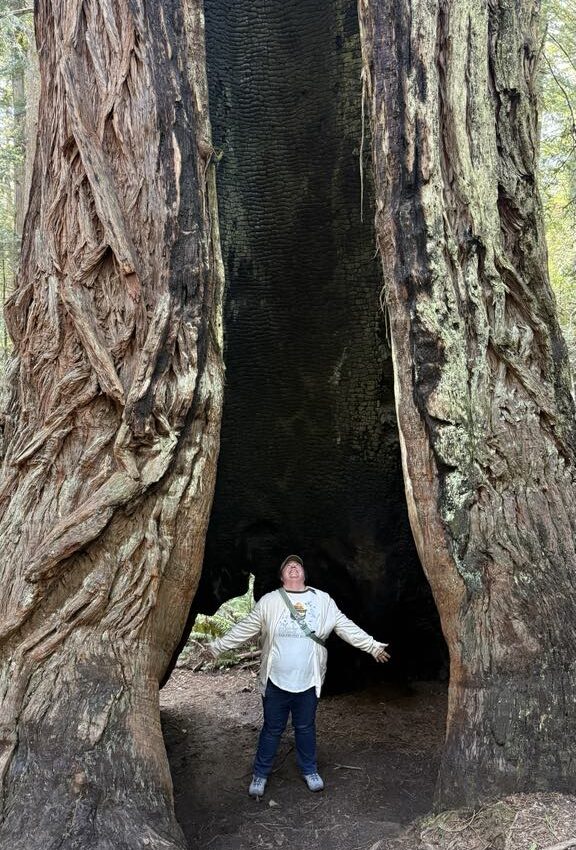It’s something straight out of a science fiction novel: a dark and limitless expanse, full of bright stars, as foreign and intangible as any distant galaxy.
It’s a kind of limbo, a gray area where my thoughts are made concrete on the page but haven’t actually transformed into anything meaningful yet.
It’s an imaginary abyss inside my computer screen, a gaping crater hanging off the back of my monitor, catching words like pennies in a well.
I’m talking about the void: the place where I funnel nearly all of my creative energy, typing away at short stories and personal essays and blog posts, following my stories down the rabbit hole.
Trouble is, despite all the time, energy, and attention I devote to them, those pieces may never see the light of day. That’s the thing about writing without a built-in audience or fan base: you just never know if that piece you spent ten weeks writing and revising will ever be published (or, even if it is published, if anyone will ever read it).
That’s what writing into the void is. It’s writing your heart out in the face of doubt and uncertainty. Writing even though you may end up being the only person who knows those stories have been told.
I’ll admit it sounds…depressing. I don’t know where the idea of the void came from, but then again, I’m a writer, so I can’t be blamed for having an active imagination. I just know I imagine it every time I sit down to write. I start typing and the void opens up to collect the day’s words, making no judgments (thankfully) about either the quality or quantity of what goes inside.
I spend a lot of time writing into this void where unfinished, unpublished, and unread pieces live. This place where I store the little carved-out wedges of my heart in the hopes that someone else will read them and feel what I felt, see what I saw, know what I learned.
I have two short stories and several essays living in the void right now. My blog is still in the newborn phase, so even though I’m hitting publish on those posts and sending them out into the universe, I think probably only my mother is reading them. And she doesn’t even care about creating more compelling characters in fiction. She’s just humoring me.
Will anything ever come of these pieces in the void? Who knows. Do I struggle with accepting that? You bet.
It’s no easy task to pour your blood, sweat, and tears into something, then wonder if anyone other than you (and maybe your immediate family) will ever know it exists. That’s an enormous part of the thrill of having a piece accepted for publication somewhere—it’s not just the affirmation that you can call yourself a real writer, but the knowledge that your work is no longer floating around in the ether, untethered like a lost balloon.
Once in a while, I think about giving up writing. I know, I know—all writers do this. For different reasons, and at different points in their writing careers. But when I think about giving up writing, it’s usually because I’ve let the void get the better of me. I’ve let it grow too loud, given it too much control. It’s a huge, hungry void, but it’s my void—I can silence it or ignore it anytime I choose.
So can you. If you are ever writing into the void and find it whispering discouraging things back at you, there are things you can do to avoid giving it too much power. These are the strategies I’ve returned to, time and time again, to make writing into the void a little less painful:
1) Remember that publication is a mystery, and you never know what will make an impression (or when).
I’ve been honest with you so far, so I’ll continue the trend: that story you’ve slaved over for eight months may never make it out of the void. There are so many factors involved with publication that no amount of sheer talent alone can guarantee success. Then again, you might wind up surprised—Your Little Story That Could might just find its way into the right person’s hands at the exact right moment in time.
But only if you’re persistent enough. Only if you keep working at it. Only if you can look the void in the eye and say, “Not today, Void! Today, I pretend you don’t exist.” Never assume publication will happen, but always believe it can.
2) Join or build up a supportive writing network.
Find a writer’s group at your local library. Take a class at the closest community college. Enroll in an online workshop. If all else fails, rally up some people and create a Facebook group. However you do it, get together with a few other writers and buoy each other up during the tough times. There is solidarity in knowing that other writers just like you are struggling to make it work. Share doubts, share tips, share successes. Become part of a network, and you’ll stop feeling like the void is quite so infinite.
3) Consider all of your writing to be skills development.
Ok, so you wrote a short story and you’ve submitted it to 30 different publications and it’s been in the void for almost a year. That’s disappointing. There’s still hope, though you may understandably want to move onto something new.
So was writing that story a waste of time?
Definitely not. Think about what you learned from it. Maybe you figured out how to write effectively in third person (you were previously a first-person loyalist). Maybe you crafted a really twisty-yet-satisfying conclusion. Maybe, through several revisions, you finally ended up with truly authentic dialogue. Whether your work ever leaves the void or not, every time you sit down to write, you teach yourself something. Publication doesn’t transform you into a better writer—you become a better writer through the process of writing.
4) Write for yourself.
Let’s end with the obvious: don’t write to become famous or make a lot of money. Even successful, published authors often have to keep their day jobs. But if you’re writing for yourself, the only way to fail is to stop writing. If you’re writing because it keeps you sane, or soothes an artistic restlessness, or because it’s fun to imagine that the world is a different place than it actually is, then you don’t mind quite as much when your writing drifts out into the void and remains there indefinitely.
You showed up. You wrote. You told the void who was boss. Well done, you.
 Sarah Bradley is a freelance writer, creative writing teacher, and founder of Pen to Paper Creative Writing Services. She received a Bachelor’s degree in English from Southern Connecticut State University. Since 2012, she has been teaching creative writing to youth and adults along the shoreline, encouraging writers of all ages to put their ideas down on paper. Her fiction has appeared in The Lost Country, The Forge Literary Magazine, and Black Fox Literary Magazine. Her nonfiction has been featured at Tribe Magazine, Parent.co, Sammiches & Psych Meds, Mom.me, Mommy Nearest, and Mothers Always Write. Sarah currently lives in Connecticut with her husband and three young sons. She shares her writing struggles and inspirations on her blog, as well as on Facebook and Instagram.
Sarah Bradley is a freelance writer, creative writing teacher, and founder of Pen to Paper Creative Writing Services. She received a Bachelor’s degree in English from Southern Connecticut State University. Since 2012, she has been teaching creative writing to youth and adults along the shoreline, encouraging writers of all ages to put their ideas down on paper. Her fiction has appeared in The Lost Country, The Forge Literary Magazine, and Black Fox Literary Magazine. Her nonfiction has been featured at Tribe Magazine, Parent.co, Sammiches & Psych Meds, Mom.me, Mommy Nearest, and Mothers Always Write. Sarah currently lives in Connecticut with her husband and three young sons. She shares her writing struggles and inspirations on her blog, as well as on Facebook and Instagram.
Sarah’s short story “Otis: 1998 -2016” appears in Black Fox Issue 15.




So reassuring! Thanks for this. Especially with the ease of internet sharing, you never really know who will hear you, or how your work will touch them. But there are people listening…